-
 Bitcoin
Bitcoin $106,754.6083
1.33% -
 Ethereum
Ethereum $2,625.8249
3.80% -
 Tether USDt
Tether USDt $1.0001
-0.03% -
 XRP
XRP $2.1891
1.67% -
 BNB
BNB $654.5220
0.66% -
 Solana
Solana $156.9428
7.28% -
 USDC
USDC $0.9998
0.00% -
 Dogecoin
Dogecoin $0.1780
1.14% -
 TRON
TRON $0.2706
-0.16% -
 Cardano
Cardano $0.6470
2.77% -
 Hyperliquid
Hyperliquid $44.6467
10.24% -
 Sui
Sui $3.1128
3.86% -
 Bitcoin Cash
Bitcoin Cash $455.7646
3.00% -
 Chainlink
Chainlink $13.6858
4.08% -
 UNUS SED LEO
UNUS SED LEO $9.2682
0.21% -
 Avalanche
Avalanche $19.7433
3.79% -
 Stellar
Stellar $0.2616
1.64% -
 Toncoin
Toncoin $3.0222
2.19% -
 Shiba Inu
Shiba Inu $0.0...01220
1.49% -
 Hedera
Hedera $0.1580
2.75% -
 Litecoin
Litecoin $87.4964
2.29% -
 Polkadot
Polkadot $3.8958
3.05% -
 Ethena USDe
Ethena USDe $1.0000
-0.04% -
 Monero
Monero $317.2263
0.26% -
 Bitget Token
Bitget Token $4.5985
1.68% -
 Dai
Dai $0.9999
0.00% -
 Pepe
Pepe $0.0...01140
2.44% -
 Uniswap
Uniswap $7.6065
5.29% -
 Pi
Pi $0.6042
-2.00% -
 Aave
Aave $289.6343
6.02%
What tools are needed to generate an Ethereum wallet address?
Generating an Ethereum wallet address requires software, not specialized hardware. Options range from user-friendly online wallets to more secure desktop or hardware solutions; prioritizing security and understanding custodial vs. non-custodial options is crucial.
Mar 11, 2025 at 09:55 am
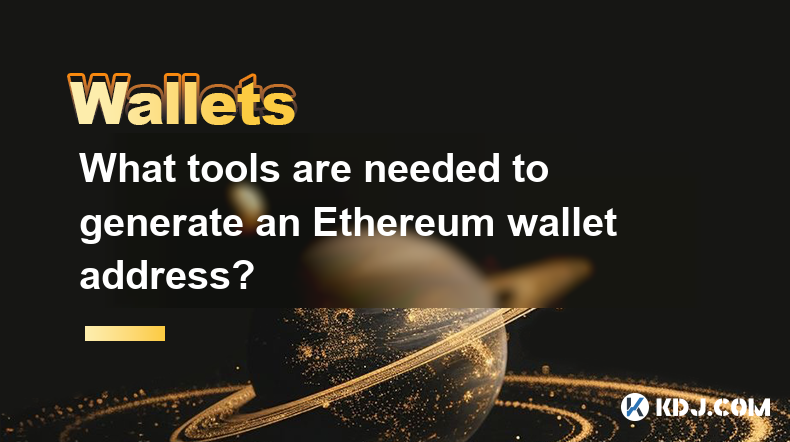
Key Points:
- Generating an Ethereum wallet address doesn't require specialized hardware, primarily relying on software tools.
- Several options exist, ranging from simple online wallets to sophisticated desktop applications. Security considerations are paramount when choosing a tool.
- Understanding the differences between custodial and non-custodial wallets is crucial for managing your private keys and ensuring asset security.
- Each tool has its own user interface and security features, requiring careful evaluation before use.
What tools are needed to generate an Ethereum wallet address?
Generating an Ethereum wallet address involves using software that creates a cryptographic key pair. This key pair comprises a private key (which must be kept secret) and a public key, from which your Ethereum address is derived. You don't need any special hardware beyond a computer and internet access. The complexity depends on the level of control and security you desire.
Software Wallets:
Several software wallets offer Ethereum support. These can be web-based, desktop applications, or mobile apps. Web-based wallets are convenient but potentially less secure as your keys are managed by a third party (custodial). Desktop and mobile apps offer more control, often providing non-custodial options where you manage your private keys directly.
- MetaMask: A popular browser extension, MetaMask offers a simple interface for interacting with Ethereum and other decentralized applications (dApps). It's relatively easy to use, but remember its security depends on your browser and computer security.
- Trust Wallet: A mobile-first wallet, Trust Wallet supports multiple cryptocurrencies, including Ethereum. It offers a user-friendly interface and is available for both iOS and Android. Always ensure you download from official app stores.
- Ledger Live: While Ledger is primarily known for its hardware wallets, its accompanying software, Ledger Live, can be used to manage Ethereum accounts alongside those on your hardware wallet. This combines the security of hardware storage with software accessibility.
- MyEtherWallet (MEW): A well-established web-based wallet, MEW offers a range of features. However, because it's web-based, extra caution is needed to ensure you're using the legitimate website and not a phishing site.
Hardware Wallets:
For maximum security, consider a hardware wallet. These devices store your private keys offline, significantly reducing the risk of theft through malware or hacking.
- Ledger Nano S/X: These devices are popular choices for storing various cryptocurrencies, including Ethereum. They are physically secured and offer a robust level of protection against online threats.
- Trezor Model One/T: Similar to Ledger devices, Trezor hardware wallets provide secure offline storage for your private keys. They have a strong reputation within the crypto community for their security features.
The process of creating a wallet address varies slightly depending on the chosen tool. Generally, it involves installing the software, creating a new wallet, and then securely storing your seed phrase (a crucial backup phrase). Never share your seed phrase with anyone.
Choosing the Right Tool:
The best tool for you depends on your technical skills and security needs. If you prioritize ease of use and don't mind some level of reliance on a third party, a web-based or mobile wallet might suffice. However, for enhanced security and greater control, a desktop or hardware wallet is recommended.
Remember to always verify the legitimacy of any software or website before providing your personal information or private keys. Phishing scams are prevalent in the cryptocurrency space.
Common Questions:
Q: Are online Ethereum wallets safe?
A: Online wallets, while convenient, are inherently riskier than offline solutions like hardware wallets because they are vulnerable to hacking and malware. Choose reputable providers and understand the risks involved.
Q: What is a seed phrase, and why is it important?
A: A seed phrase is a list of words that acts as a backup for your wallet. If you lose access to your wallet, your seed phrase allows you to recover your funds. Keep it secure and offline. Never share it with anyone.
Q: Can I generate an Ethereum address without any software?
A: No, you need software to generate the cryptographic key pair that forms the basis of your Ethereum address and private key.
Q: What is the difference between a public and a private key?
A: Your public key is like your bank account number – it's used to receive funds. Your private key is like your PIN – it's needed to access and spend your funds. Keep your private key absolutely secret.
Q: Is it possible to recover an Ethereum wallet if I lose my private key?
A: If you lose your private key without having a backup seed phrase, your funds are likely lost. This highlights the critical importance of backing up your seed phrase securely.
Q: How do I choose a secure password for my Ethereum wallet?
A: Use a strong, unique password that's long and complex, combining uppercase and lowercase letters, numbers, and symbols. Avoid using passwords you use for other accounts. Consider a password manager to help you generate and securely store strong passwords.
Disclaimer:info@kdj.com
The information provided is not trading advice. kdj.com does not assume any responsibility for any investments made based on the information provided in this article. Cryptocurrencies are highly volatile and it is highly recommended that you invest with caution after thorough research!
If you believe that the content used on this website infringes your copyright, please contact us immediately (info@kdj.com) and we will delete it promptly.
- 2025-W Uncirculated American Gold Eagle and Dr. Vera Rubin Quarter Mark New Products
- 2025-06-13 06:25:13
- Ruvi AI (RVU) Leverages Blockchain and Artificial Intelligence to Disrupt Marketing, Entertainment, and Finance
- 2025-06-13 07:05:12
- H100 Group AB Raises 101 Million SEK (Approximately $10.6 Million) to Bolster Bitcoin Reserves
- 2025-06-13 06:25:13
- Galaxy Digital CEO Mike Novogratz Says Bitcoin Will Replace Gold and Go to $1,000,000
- 2025-06-13 06:45:13
- Trust Wallet Token (TWT) Price Drops 5.7% as RWA Integration Plans Ignite Excitement
- 2025-06-13 06:45:13
- Ethereum (ETH) Is in the Second Phase of a Three-Stage Market Cycle
- 2025-06-13 07:25:13
Related knowledge
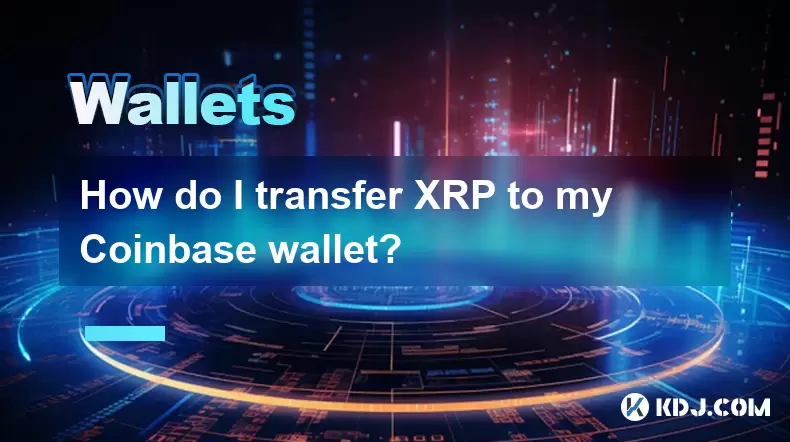
How do I transfer XRP to my Coinbase wallet?
Jun 16,2025 at 04:57pm
Understanding the Basics of XRP and Coinbase CompatibilityBefore initiating any transfer, it’s essential to confirm whether Coinbase supports XRP. As of recent updates, Coinbase has resumed offering XRP trading services on its platform after a period of uncertainty due to legal issues involving Ripple Labs. However, availability may vary depending on yo...

How do I deposit BNB into my Trust Wallet?
Jun 15,2025 at 03:56pm
Understanding BNB and Trust Wallet CompatibilityBefore initiating a deposit, it’s crucial to understand what BNB is and how it interacts with Trust Wallet. BNB (Binance Coin) is a utility token created by the Binance exchange. It can be used for paying transaction fees, participating in token sales, and more. Trust Wallet, on the other hand, is a mobile...
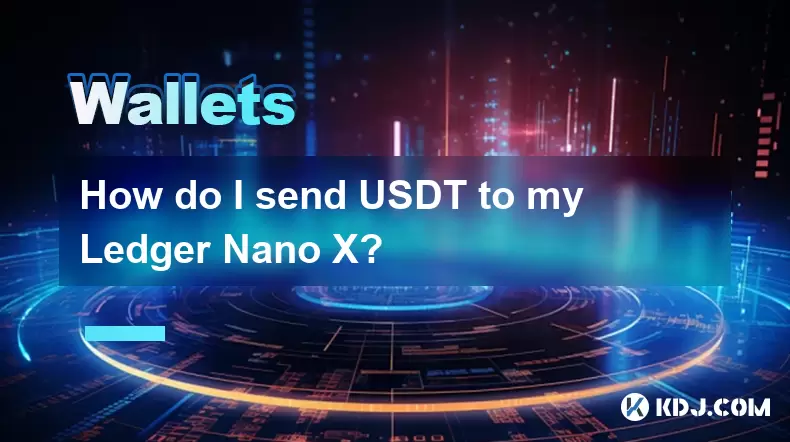
How do I send USDT to my Ledger Nano X?
Jun 15,2025 at 06:28am
What is USDT and Why Use Ledger Nano X?USDT, also known as Tether, is one of the most widely used stablecoins in the cryptocurrency ecosystem. It operates on various blockchain networks such as Ethereum (ERC-20), Tron (TRC-20), and others, offering users a digital asset pegged 1:1 to the US dollar. When it comes to storing USDT securely, hardware wallet...
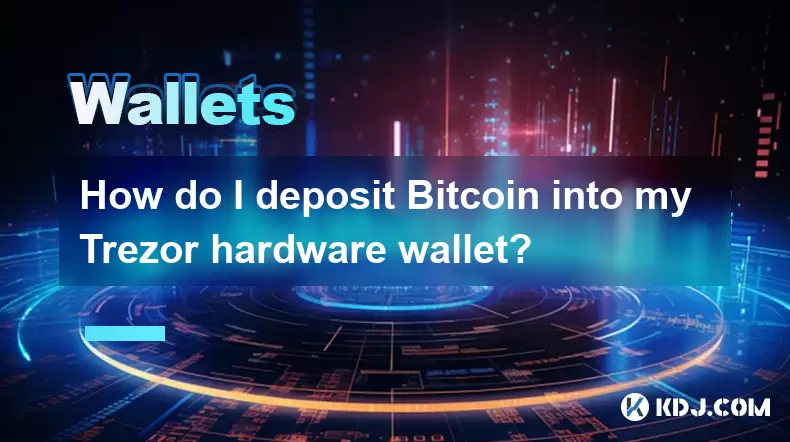
How do I deposit Bitcoin into my Trezor hardware wallet?
Jun 14,2025 at 12:29pm
What is a Trezor Hardware Wallet?A Trezor hardware wallet is a secure device designed to store cryptocurrencies offline, protecting them from online threats. Unlike software wallets, which are vulnerable to hacking and malware, Trezor stores private keys on the physical device itself. This ensures that transactions can only be approved by physically int...
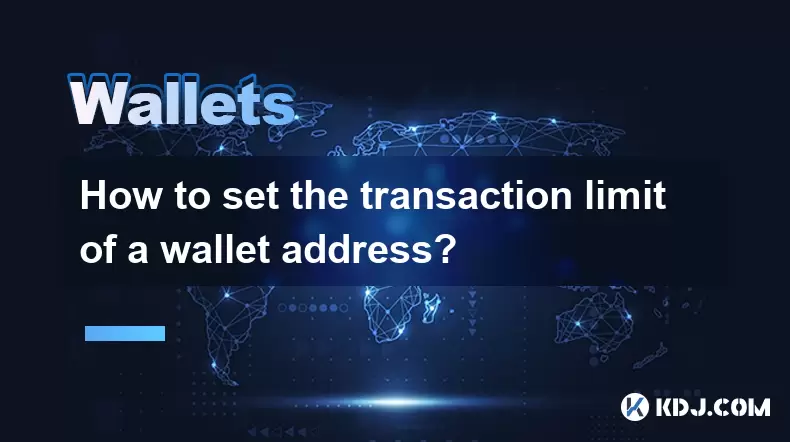
How to set the transaction limit of a wallet address?
Jun 16,2025 at 04:08am
Understanding the Concept of Transaction Limits in Cryptocurrency WalletsIn the cryptocurrency ecosystem, transaction limits refer to predefined restrictions placed on the amount of digital assets that can be sent or received by a wallet address within a specified timeframe. These limits are typically enforced by platforms such as exchanges, custodial w...
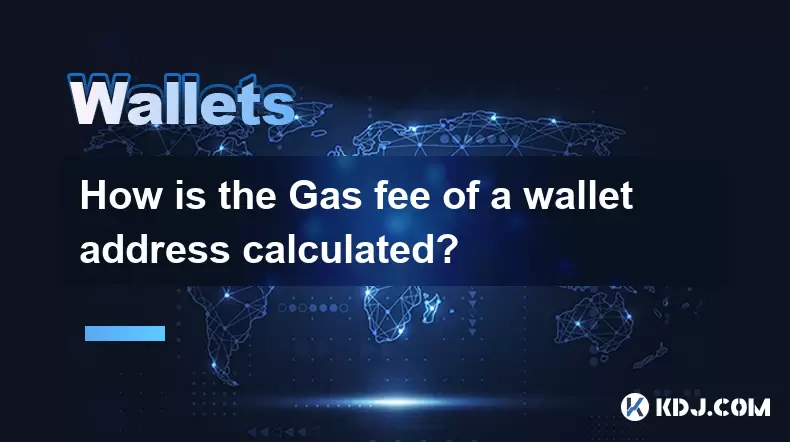
How is the Gas fee of a wallet address calculated?
Jun 14,2025 at 07:57pm
Understanding the Basics of Gas Fees in Blockchain TransactionsIn the cryptocurrency ecosystem, particularly within Ethereum-based networks, a Gas fee is an essential component of executing transactions or smart contract operations. The Gas fee serves as compensation for miners or validators who process and confirm transactions on the blockchain. It is ...

How do I transfer XRP to my Coinbase wallet?
Jun 16,2025 at 04:57pm
Understanding the Basics of XRP and Coinbase CompatibilityBefore initiating any transfer, it’s essential to confirm whether Coinbase supports XRP. As of recent updates, Coinbase has resumed offering XRP trading services on its platform after a period of uncertainty due to legal issues involving Ripple Labs. However, availability may vary depending on yo...

How do I deposit BNB into my Trust Wallet?
Jun 15,2025 at 03:56pm
Understanding BNB and Trust Wallet CompatibilityBefore initiating a deposit, it’s crucial to understand what BNB is and how it interacts with Trust Wallet. BNB (Binance Coin) is a utility token created by the Binance exchange. It can be used for paying transaction fees, participating in token sales, and more. Trust Wallet, on the other hand, is a mobile...

How do I send USDT to my Ledger Nano X?
Jun 15,2025 at 06:28am
What is USDT and Why Use Ledger Nano X?USDT, also known as Tether, is one of the most widely used stablecoins in the cryptocurrency ecosystem. It operates on various blockchain networks such as Ethereum (ERC-20), Tron (TRC-20), and others, offering users a digital asset pegged 1:1 to the US dollar. When it comes to storing USDT securely, hardware wallet...

How do I deposit Bitcoin into my Trezor hardware wallet?
Jun 14,2025 at 12:29pm
What is a Trezor Hardware Wallet?A Trezor hardware wallet is a secure device designed to store cryptocurrencies offline, protecting them from online threats. Unlike software wallets, which are vulnerable to hacking and malware, Trezor stores private keys on the physical device itself. This ensures that transactions can only be approved by physically int...

How to set the transaction limit of a wallet address?
Jun 16,2025 at 04:08am
Understanding the Concept of Transaction Limits in Cryptocurrency WalletsIn the cryptocurrency ecosystem, transaction limits refer to predefined restrictions placed on the amount of digital assets that can be sent or received by a wallet address within a specified timeframe. These limits are typically enforced by platforms such as exchanges, custodial w...

How is the Gas fee of a wallet address calculated?
Jun 14,2025 at 07:57pm
Understanding the Basics of Gas Fees in Blockchain TransactionsIn the cryptocurrency ecosystem, particularly within Ethereum-based networks, a Gas fee is an essential component of executing transactions or smart contract operations. The Gas fee serves as compensation for miners or validators who process and confirm transactions on the blockchain. It is ...
See all articles

























































































